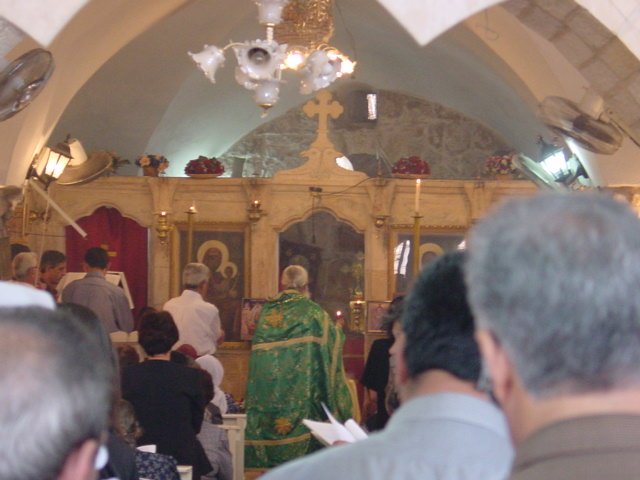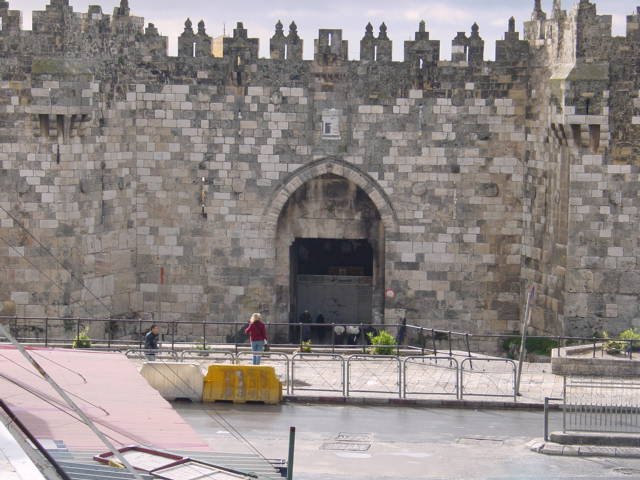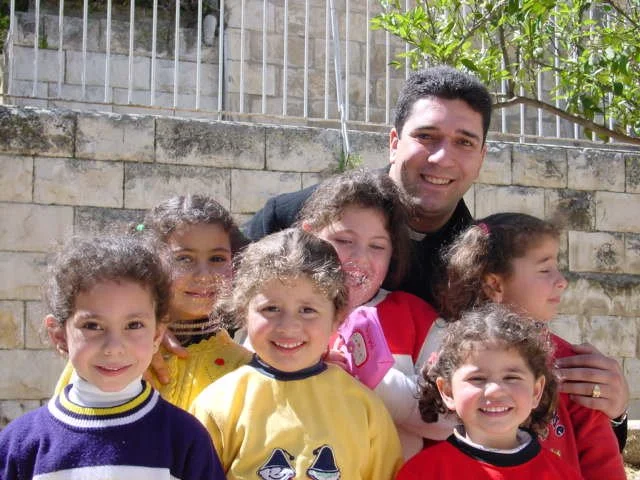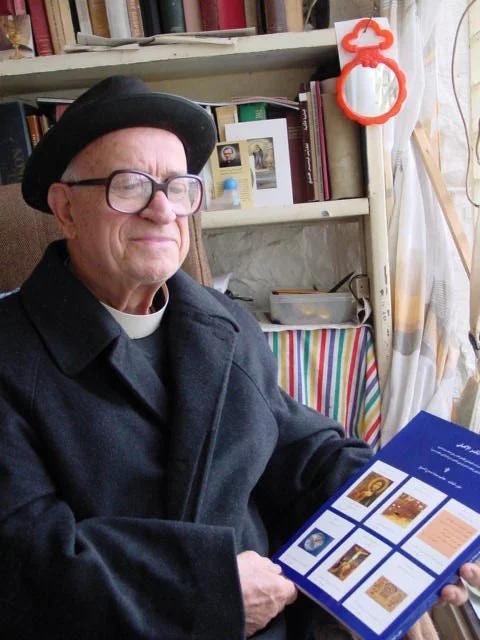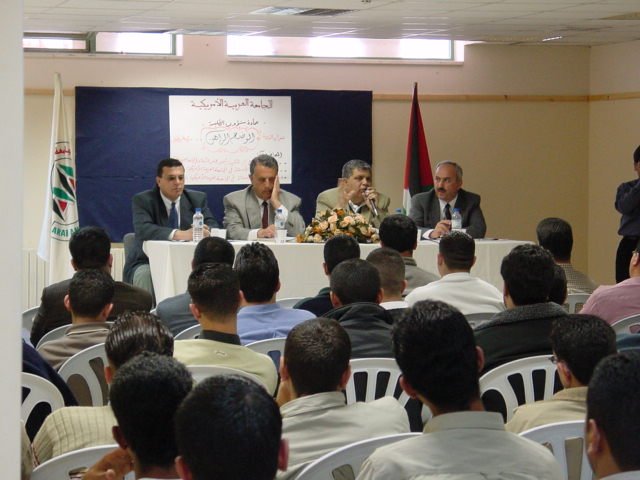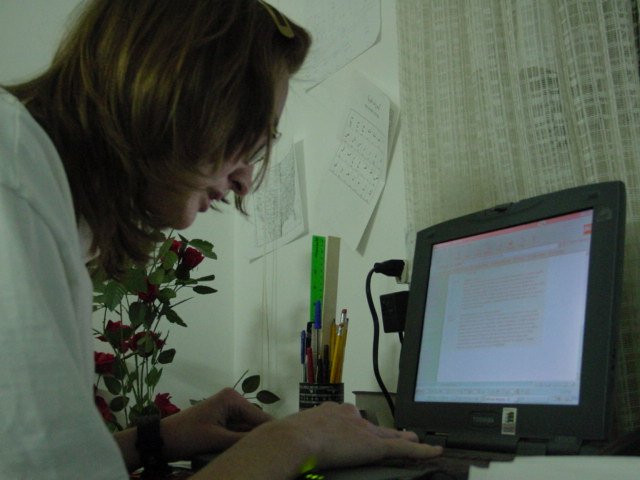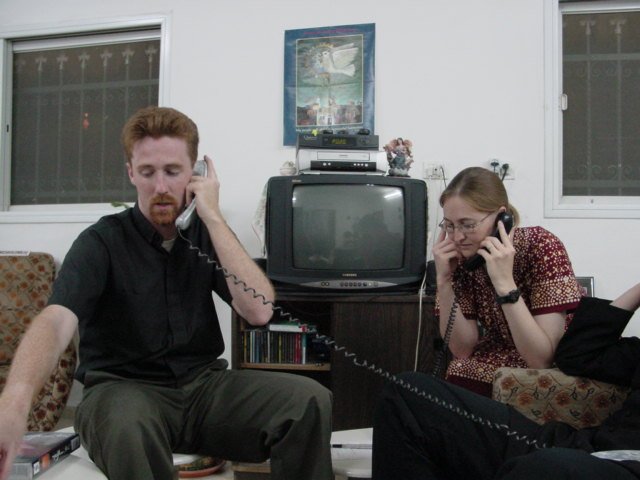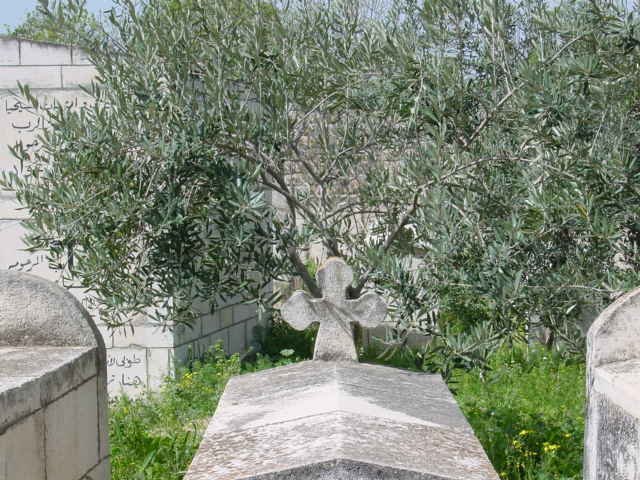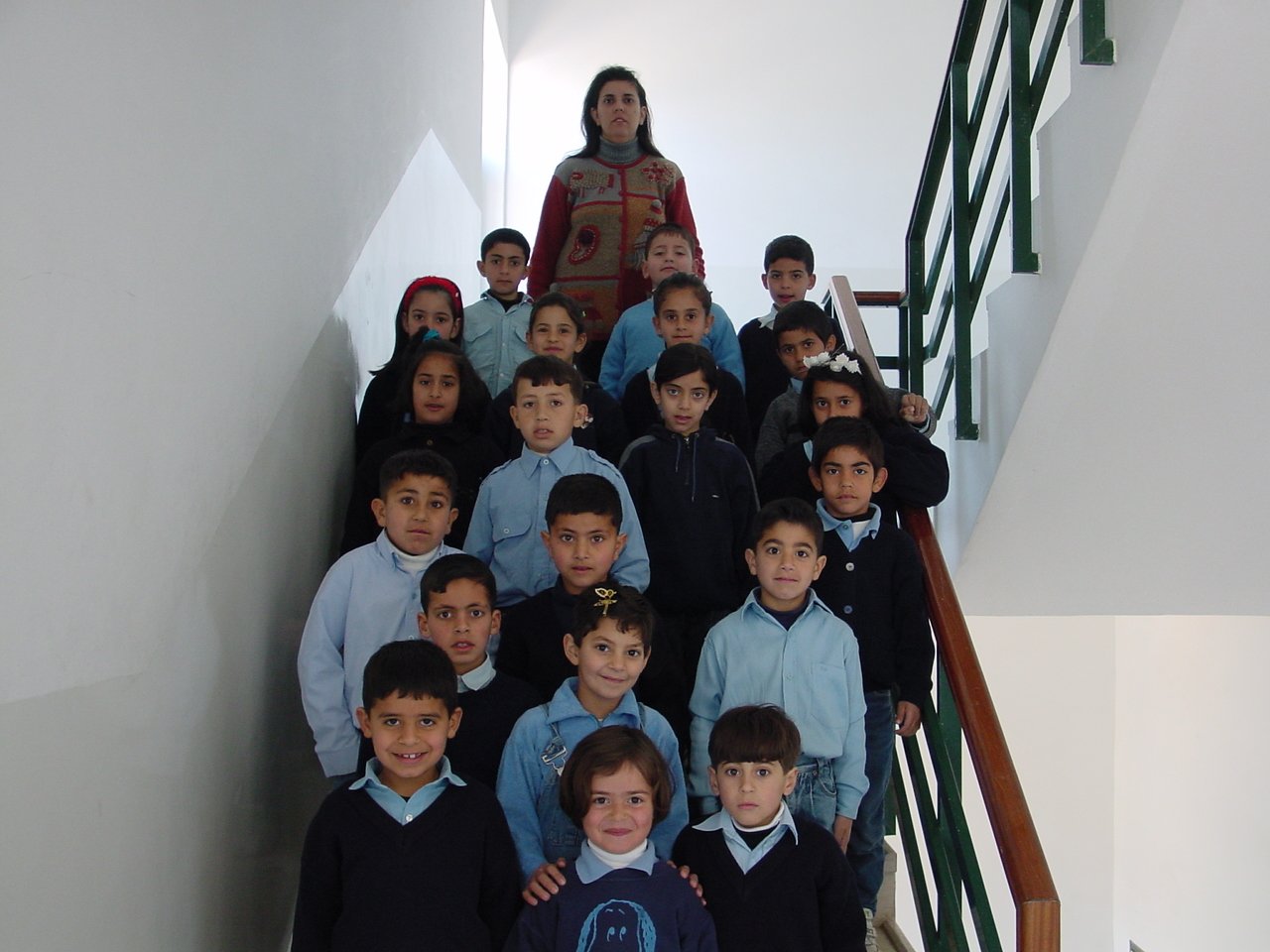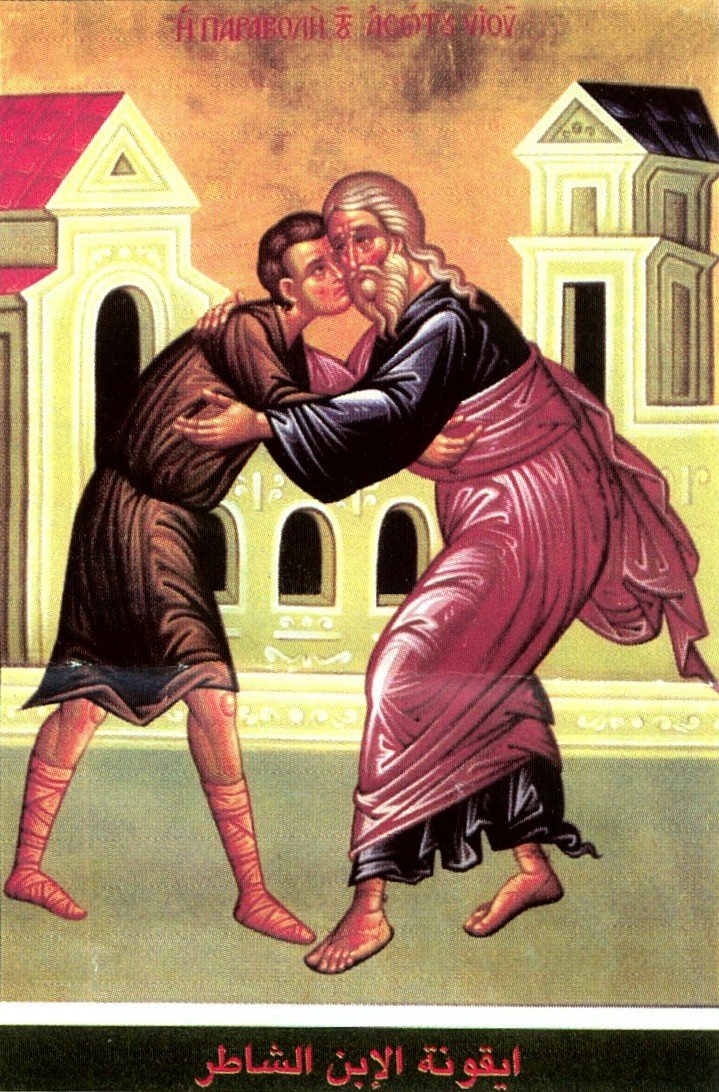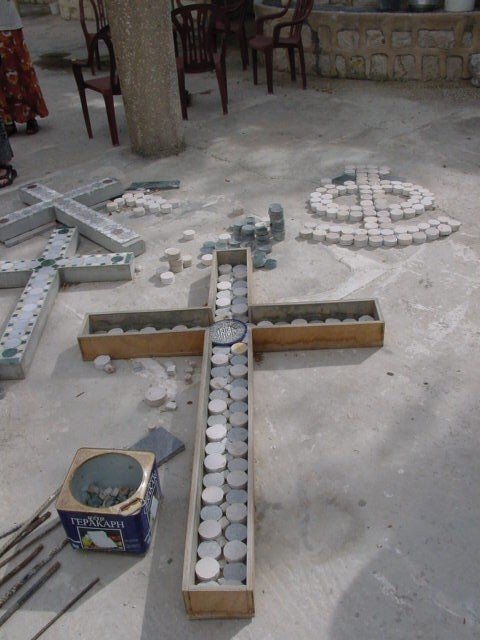March, 2002
The Western churches, meanwhile, will be gathering soon to sit vigil by the tomb. In a land of such death, it only seems appropriate.
As Arafat's compound was under siege, word of another suicide bombing in Jerusalem came. It's really bad. Really bad. Good Friday indeed...
The busses had a difficult time finding a road that was wide enough for them (winding through the middle of the village) and then, when they did, the rain made them muddy and impassible!
Marthame headed into Jenin to take care of some business - the taxis were using yet another round-about road (even for here) - it turned out that the municipality of Qabatia is working on the road that we used to take. Since they can't get their hands on any asphalt (usually imported from Israel), they are using iron frames and pouring cement for the entire length of the road.
We could see flares being shot over the hill, which made us worry for our friends in Aqaba and Tubas.
News has come out recently that if cease-fire talks fail, Israel plans to hit the refugee camps again. What more can be done, other than ethnic-cleansing? The refugees have nowhere to flee, and even if they could, the spectre of 1948's "temporary" flight weighs on their minds. Fleeing is no longer an option. Staying and fighting is all that remains. These scars will stay a long time...
They finally reached the other side of the destruction and the waiting taxis, just under the shadow of the most surreal sight in the Northern West Bank - a restaurant in an old airplane under the shadow of a ferris wheel.
This youth leader is particularly interested in working with the Christian kids of the West Bank to deepen their faith to understand better what it means to be a Christian in a predominantly Muslim Palestinian society.
Since the churches in Zababdeh celebrate Christmas on the Western calendar, Easter (and Lent as a result) is celebrated on the Eastern calendar.
Such things like that don't even register on people's radar screens anymore, let alone make the news. Nevertheless, they perpetuate and spread hopelessness.
Roughly 25,000 people live in Jenin Camp, a third of the population of the city, all refugees and their descendants from the 1948 expulsion of Arabs from Israel proper. At first, they lived in tents, but then began to build irregular housing - their living conditions are reminiscent of the colonias along the Mexican-American border. Add to that the military activity of fifty to sixty tanks, air support, and who knows how many soldiers, and you begin to get a picture of what life is like now.
We did so not only to give each other a break and some support, but also to talk about what - if anything - more we could be doing to participate in peace-making and justice issues in our immediate area. Most people are writing a great deal now, but trying to find Western newspapers willing to publish a view "outside the mainstream" is much like beating your head against a wall.
We set out in the afternoon towards the forest near the village of Raba, but were intrigued by a seasonally dry stream bed we saw as we walked along the road. We spent the next hour or so traversing the pastures along its lush and flowered banks, hidden from the world by the tall fields of wheat on either side.
We both joined the busses, more to keep the students calm than to do anything concrete. One of Marthame's students remarked, "You'll see us on TV soon wearing plastic handcuffs".
We then headed off to the Beit al-'Azza (the house of mourning), in which families of the fifteen killed were receiving people. It was the third day after their deaths, as is traditional in Arab society for visitation and condolences. We drank our bitter coffee and left.
People of the village have been gathering food and money for the victims of Jenin Camp from the recent Israeli attack. We will probably go as part of an official delegation tomorrow.
Families of those who had died in the past year handed out sweets to those who came to pay their respects. It seems like death is simply everywhere.
Marthame headed to school and then off in the afternoon to play soccer. It was a good chance to get some of the pent-up emotional baggage of the last few days out.
Israeli tanks had apparently come to the edge of Tubas, so we were anxious to get our many Tubas students and teachers back home to their families.
There are worries that the Israeli army, hot on the heels of Sharon's frightening message of "hitting the Palestinians harder", is preparing to enter more and more Palestinian villages conducting house to house searches. People here are feeling worried, sad, angry, and hopeless.
The lectionary was the story which most of us know as the Prodigal Son (interestingly known as "The Wise Son" in Arabic - because he returns in the end) from Luke 15.
A good friend of ours who works in Israel told us about his return trip home to Zababdeh. When he approached the border, the soldier leveled his M-16 at him and made him demonstrate - from a distance of some 50 meters - that he wasn't carrying any explosives. Attacks at checkpoints are on the rise, and the soldiers, many of them scared 18 year-old kids, are not taking many chances. But, beyond the call of security, people have also been shot, detained, beaten without reason, fearing for their lives.
Balata refugee camp was hit today in Nablus - and hit hard according to the initial reports we've gotten. These people, refugees from the 1948 War and their descendants, were refugees again today as the Israeli army told them to leave while they conducted house-to-house searches. Many preferred to stay, remembering quite well what happened the last time they left their houses "for a little while".

